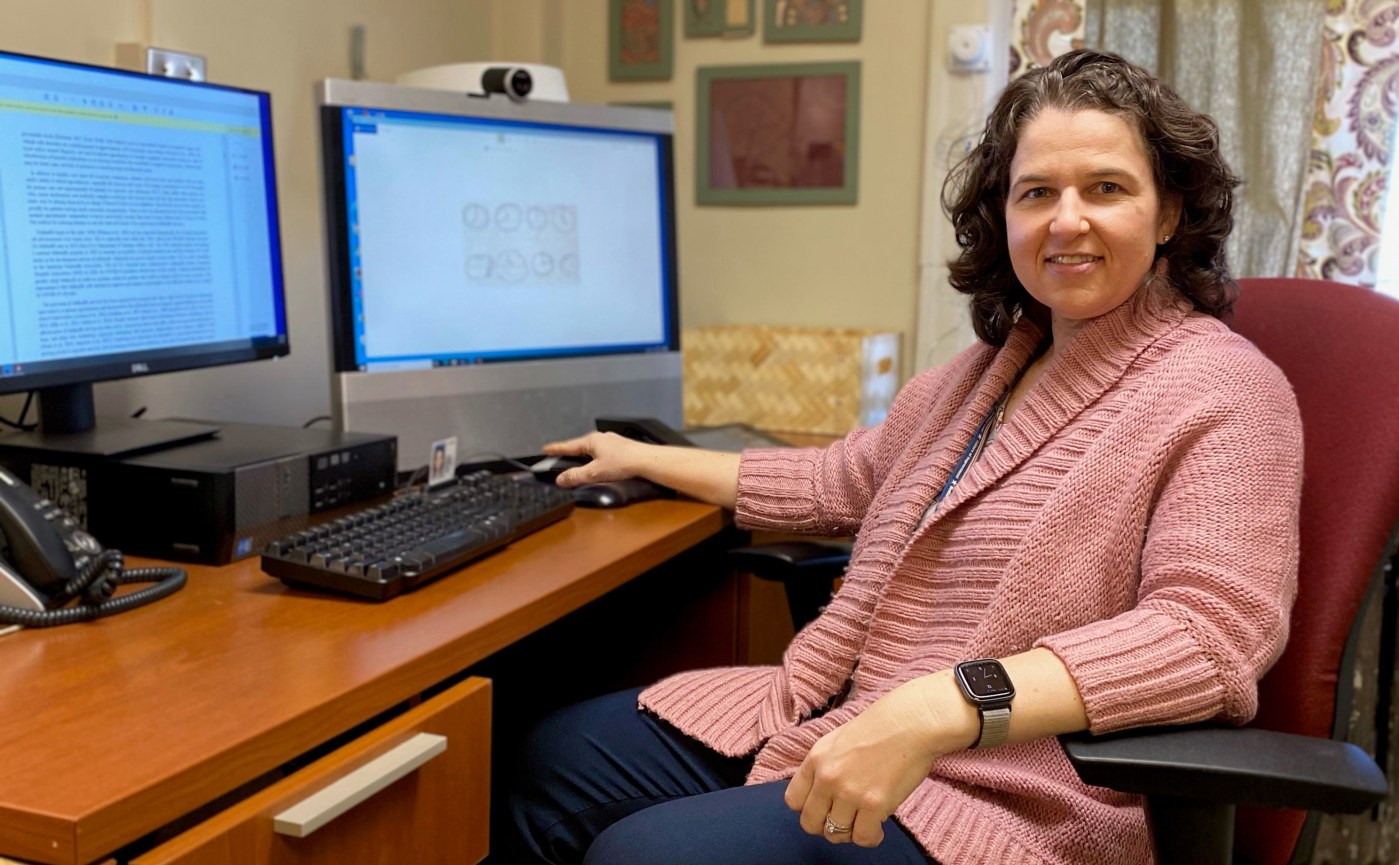Dr. Malissa Kraft, a neuropsychologist at the VA Bedford Healthcare System in Massachusetts, recalls a personal story that made her research hit home.
Born and raised in rural Iowa, she learned firsthand that many specialty health services are not accessible to people who live far from a metropolitan area. When her grandmother had a stroke in 2015, no neurologist or neuropsychologist was close enough to evaluate her, and it wasn’t feasible to drive 100 miles each way for an appointment.
“Asking our elderly, anxious, and possibly cognitively impaired patients to endure a long car ride, in addition to what is already a long and sometimes stressful appointment, just doesn’t seem like a good idea,” Kraft says.
“In addition, caregivers of these older adults are often called upon to provide transportation to appointments. This is a group of adults already facing tremendous stress providing care. Expecting them to take full days off to transport their elderly loved one creates an unnecessary burden and financial repercussions for these caregivers. Even for people who do live near a metropolitan center, the wait times to see a neuropsychologist can be many months.”
`It just seemed like it was meant to be’
When Kraft joined VA Bedford in 2015, she learned that one of her colleagues, Dr. Lauren Moo, had set up a video-to-home teleneurology clinic to manage dementia. Moo co-authored a study on the program in 2020.
Given that Moo had established precedent for providing telehealth services to older Veterans, Kraft felt that creating a teleneuropsychology service to administer cognitive tests over a video call was the next logical step. In a teleneurology dementia visit, she envisioned how a neurologist would talk to a patient – and usually the family caregiver as well – about dementia symptoms and would possibly prescribe medication.
“VA has been investing in telehealth for years, so the necessary equipment and infrastructure was there,” Kraft says. “It just seemed like it was meant to be. The need was there, the resources and support were there, and the motivation was there.”
`I was overall satisfied with this visit’
Kraft has since led a study on patient satisfaction with a teleneuropsychology clinic that VA Bedford opened in 2017 to serve older Veterans with cognitive aging concerns, mainly those related to Alzheimer’s disease, the most common form of dementia. The study appeared in January 2021 in the journal The Clinical Neuropsychologist.
Symptoms of Alzheimer’s include deficits in thoughts, memory and language. Alzheimer’s is the sixth leading cause of mortality in the United States, with death usually a result of complications such as pneumonia and bladder infections.
The clinic is limited to patients age 55 and older. Although most of the evaluations are related to assessing for the presence of dementia, the clinic is not specific to dementia. “We endeavor to assess older adults who are experiencing problems with memory or thinking,” Kraft says, “and while the cause of those problems often ends up being dementia, there are many other potential causes for such problems as well.”
Patients completed cognitive tests
Her study included 131 Veterans who were enrolled pre-COVID and divided evenly between tele-users of VA Bedford’s teleneuropsychology clinic and those who made in-person visits to that facility. For the former, neuropsychology clinicians at VA Bedford were connected via a video hookup to patients who chose from five CBOCs (community-based outpatient clinics) affiliated with the Manchester VA Medical Center in New Hampshire.
Kraft and her team gave patients a series of cognitive tests resembling those from in-person evaluations. The patients were asked to remember words and stories that are read to them, repeat numbers, and draw objects, such as a clock. They were also asked to think of names of pictures they were shown or think of words starting with a particular letter. The researchers also asked the patients 15 yes-or-no questions to screen for depression, such as:
- Have you dropped many of your activities and interests?
- Do you feel full of energy?
- Do you feel you have more problems with memory than most people?
Trained clinical technicians were on site to help the patients carry out the tasks.
Patient satisfaction was evaluated via a self-report questionnaire. Unsurprising to the researchers, the findings showed that satisfaction was high for all aspects of the patient experience, with no major difference between the groups. Ninety percent of the patients who used the clinics, and 98% of the in-person group, agreed or strongly agreed with the statement, “I was overall satisfied with this visit.” Plus, nearly 87% of patients in the telehealth group, and 84% of the those in the in-person group agreed or strongly agreed with the statement, “Travel to this visit was easy and stress-free.”
More Information
Click here to read the full story.
Click here to learn more about VA research.
Topics in this story
More Stories
In a new series that highlights advancements in VA health care, VA researchers and clinicians are appearing on a Veteran-themed media platform—Wreaths Across America Radio—to tout their critical work.
Recently published findings from the VA Disrupted Care National Project [...]
Diverse representation of women in health care research allows MVP to make discoveries for women’s health






